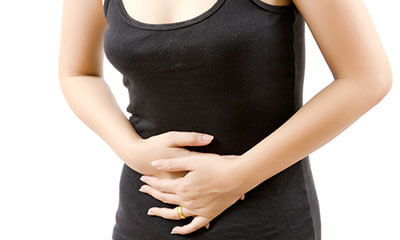Get the App
For Doctors
Login/Sign-up
Last Updated: Aug 29, 2019
BookMark
Report
What Is Diverticulitis?
Dr. Prashant K VaidyaHomeopathy Doctor • 17 Years Exp.Diploma In Gastroenterology, Diploma In Dermatology, BHMS
What is diverticulitis?
Formations called diverticula are key components of diverticulitis. Diverticula are pouches that occur along your digestive tract, most often in your colon (large intestine).
These pouches form when weak spots in the intestinal wall balloon outward. When these pouches become inflamed, or bacteria gather in them and cause an infection, you have diverticulitis.
Symptoms of diverticulitis :
- abdominal pain
- fever
- nausea
- vomiting
- increased urge to urinate, urinating more often than usual, or burning sensation while urinating
- constipation
- diarrhea
- Blood in the stool, as well as bleeding from the rectum, can occur in both diverticulosis and diverticulitis. Research reports up to 17 percent of people with chronic diverticulitis experience bleeding.
Causes :
- Diverticula usually develop when naturally weak places in your colon give way under pressure. This causes marble-sized pouches to protrude through the colon wall.
- Diverticulitis occurs when diverticula tear, resulting in inflammation or infection or both.
Diverticulitis diagnosed:
- blood tests to check for inflammation, anemia, or kidney or liver problems
- imaging tests, such as an abdominal ultrasound or an abdominal CT scan, to get pictures of your gastrointestinal (GI) tract
- urine test to check for different types of infection
- stool test to check for GI infections such as Clostridium difficile
- pelvic exam in women to rule out gynecologic problems
- pregnancy test in women to rule out pregnancy
Prevent diverticulitis:
- Exercise regularly. Exercise promotes normal bowel function and reduces pressure inside your colon. Try to exercise at least 30 minutes on most days.
- Eat more fiber. A high-fiber diet decreases the risk of diverticulitis. Fiber-rich foods, such as fresh fruits and vegetables and whole grains, soften waste material and help it pass more quickly through your colon. Eating seeds and nuts isn't associated with developing diverticulitis.
- Drink plenty of fluids. Fiber works by absorbing water and increasing the soft, bulky waste in your colon. But if you don't drink enough liquid to replace what's absorbed, fiber can be constipating.



+1.svg)
